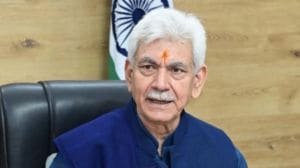Britains rice king starts to make a name for himself
Moni Varma has a good memory for figures.
Moni Varma has a good memory for figures. He recalls that his first salary – selling duplicators in his native Malawi – was $30,but he also remembers that his average monthly commission was a then-remarkable $112. Soon afterwards,he recalls,his first big sale after joining a friends barbed-wire business won him a commission of $495. I remember I couldnt reach the $500 mark, he says,as if it still rankles more than 40 years later.
Now 62,and the founder and owner of Veetee Rice,the UK-based business with a turnover of 80m that he set up in 1987,Varma deals in bigger numbers these days. Immaculate in a monogrammed white shirt and wearing a Hublot watch,he strides around his factories in Rochester,Kent,and seems almost as proud of those first deals as of his more recent,larger achievements .
The Veetee name is well known in a number of countries outside the UK as well as among Britains Asian consumers. Now,however,Varma believes his latest foray into the convenience-food sector pre-cooked dishes that are ready to heat and eat could turn his company into a mainstream brand.
After arriving in the UK in the early 1980s,where his wife had grown up,he intended to use his background in steel production in Malawi to start a plant producing reinforcement mesh. However,he was diverted by relatives in India who wanted to sell rice in Britain and had asked him for help with contacts. I knew nothing about rice,but I thought theres a bit of margin here to play with, he says.
Although confidence in UK manufacturing has wavered for decades,Varma has never shied away from borrowing large amounts of money to back his instincts. But reaching consumers would be a challenge. I had no USP and big brands like Uncle Bens and Tilda were already established here, he says. My background was selling steel in bulk and there was no branding in steel… so I knew not to go for branding.
Instead,he pursued the private- label market,starting by supplying Marks and Spencer and then exploiting the results of a taste test in which his rice came out top to win a contract with Safeway,another high-street supermarket retailer.
The business grew during the following decade,and he built factories in India,Pakistan,Malawi and Nigeria. The Indian arm of the group turns over 50m. He built up exports to about 50 countries but in the UK,where many people still struggle to cook rice that is not stodgy,the market was changing – and offering a new opportunity. Because natural rice cooked in large quantities sticks together,industrial caterers use parboiled rice that maintains its separate-grains consistency. But Varma refused. To him,parboiled rice lost the flavour,aroma and mouth feel of the natural product,while the intense heat further impaired the taste.
He flew to Japan to work with manufacturers there,but their steaming process could not get Varmas rice grains to remain separate. Refusing to be discouraged,Varma experimented by putting chicken pieces,water and a supermarket Thai curry sauce in an individual meal tray and cooking it in the plant. The result was so finger-licking good,he says,that even the Japanese workers liked it. That persuaded him to invest 200,000 in a plant in Kent to continue trials on pre-cooked rice pouches.
Varma persevered for months on cooking rice in individual trays that could be sealed and kept at ambient temperatures. Then,one fine day,we managed to crack it,more by accident than design,and we managed to keep the rice fluffy.
The gamble seems to have paid off: the ready-cooked range,branded Dine In,made profits of 2m and is carried by the main UK supermarket chains. A second production line is being installed to more than double capacity to 90m units a year.
Now he has a USP,Varma is bullish that he can build a profitable brand that appeals to a broad cross-section of consumers. The bottom line in this sphere alone could give us 20m. As a result Varma plans to sell all his factories outside of those in the UK and India in order to concentrate on development full-throttle.
Bob Sherwood & Melissa East, 2011 The Financial Times Limited






- 01
- 02
- 03
- 04
- 05

























